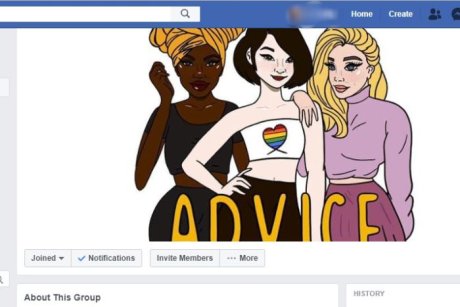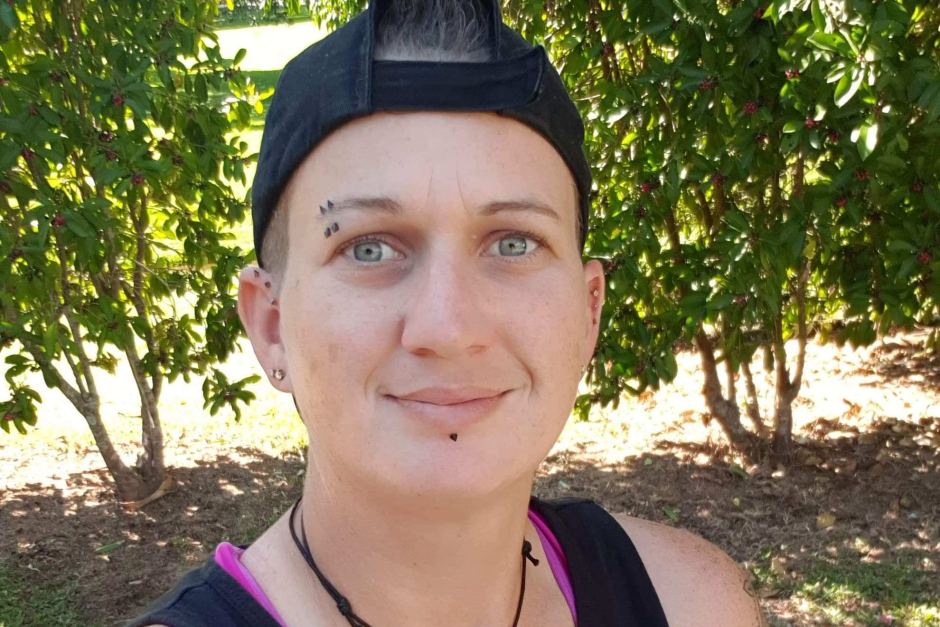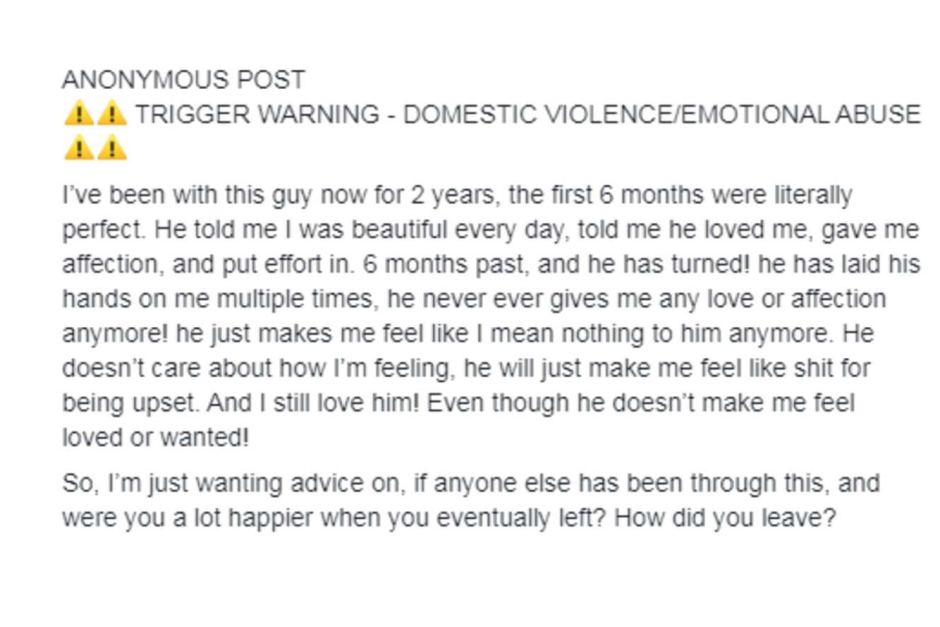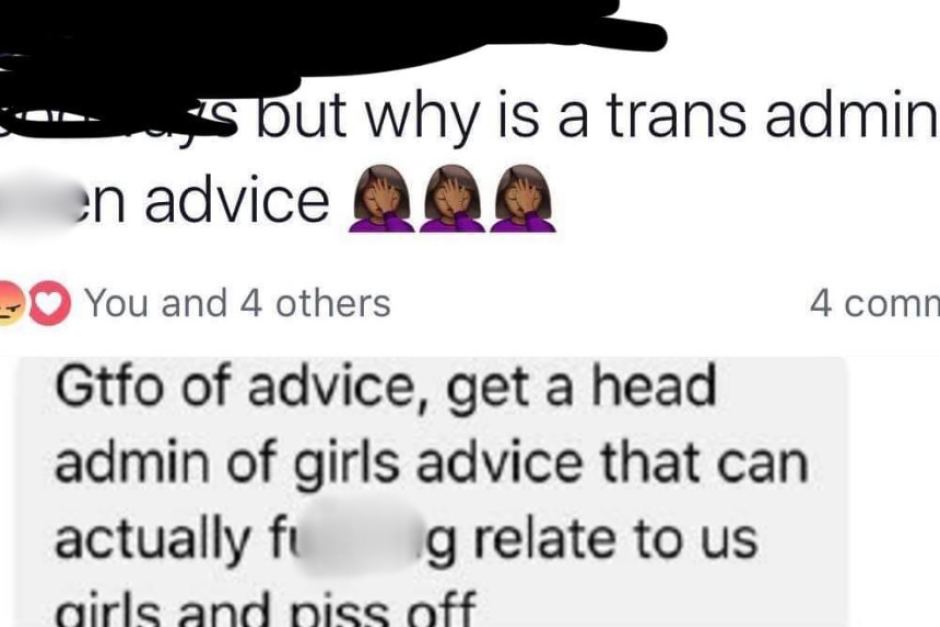Facebook groups call on platform to step up on ‘horrendous’ trolling and abuse

The motto for the secret Advice page is “seek advice, give advice, be nice”.
For many people, Facebook groups are one of the few remaining things tethering them to the platform.
Key points:
• Kate Francis, an admin of Lezbehonest, says she has been the target of online abuse on many occasions
• The admins of the country’s largest girls’ advice group say Facebook could be doing more to curb hostility in groups
• Cyberhate expert Ginger Gorman likens the task of admins to working in an unsafe building site without safety gear
Groups come with the promise of being a safe space, which are open to people from all over the world and foster a sense of community.
They are so effective in doing so that, in April, the company overhauled the platform to focus more on groups.
“Groups are now at the heart of the experience just as much as your friends and family are,” Mr Zuckerburg said.
But what happens when a group turns toxic?
Kate Francis is an administrator of Lezbehonest, a Facebook group with more than 40,000 members.
“We set it up as a bit of a support network for LGBTIQ people, women mostly, whether they’re transgender, polyamorous, anything,” Ms Francis told ABC Radio Brisbane’s Katherine Feeney.

Despite the abuse, Kate Francis says she has no plans to shut down her page.
But Ms Francis said she had become the target of abuse on many occasions.
“There are lots of aspects like being told I’m not a real lesbian because I’ve had a child and just to go eff myself because I haven’t agreed with somebody’s opinion on a certain post,” she said.
“There have been personal threats — like if they could find me they would bash me, stuff like that. Other admins of the group have also copped the same.”
Tips for managing a group
• Have a set of policies or ground rules for participation in the group — make these are clear as possible so that all members can easily see if the rules have been broken
• Warn members for first breach of the rules, let them know the consequences of further breaches
• Use the delete tools – delete posts or comments that break the groups rules
• Ban members that consistently break the rules
Despite developing a thick skin, Ms Francis said dealing with the abuse and harassment never got any easier.
“It does have an impact because I guess with social media you have the bonus of instant support if you need it but it also brings it into your house when it’s a hostile thing,” she said.
“There have been quite often times where I’ve just said to the other admins ‘I need a couple of days off, I can’t handle this at the moment’ and they’ve done the same.
“We’ll step away from our admin duties when it gets too much.”
‘My family is a target’
Ms Francis is not alone in her experience with Facebook groups turning toxic.

The women on the page seek advice and support for a broad range of issues.
Ella Park is one of the admins of the secret ‘Advice’ page that has almost 300,000 members, mostly between the ages of 18 and 24, and has overcome its history as a page based on shock value.
“When the group was first made it was not anything like it is now. It was a lot less politically correct in a sense, people posted whatever they wanted, there were arguments and no-one really gave a crap,” Ms Park said.
“[Now] it’s just a general advice group for women to connect with each other and find support on issues where they may not have support in their personal lives.
“Whether it’s regarding sensitive issues like domestic violence, or abortion, or just wanting to get out and make new friends.”

Ms Park said the group’s head administrator bears the brunt of the abuse on the page.
Ms Park described the abuse she had experienced as an admin as “horrendous”, adding that it had extended beyond the page and into her personal life.
“The abuse we’ve copped as admins has a broad range. People do tend to make a lot of personal attacks at us, especially when they’ve been removed from the group for something they don’t think they should have been blocked for,” she said.
“Like our head admin, Victoria, she has been head admin for well over a year now, and people tend to attack the fact that she is trans very harshly, which is obviously very unnecessary.
“I have people be racist towards my children. Someone once called my son a ‘Ling-Ling child’, people have been racist to our POC admin, just horrendous stuff like that that’s really unnecessary to be put on a Facebook group page.
“I’m not the target of the racism, my family is.”

Ms Park said the harassment she received online was often targeted at her husband and children.
‘Nothing gets done’
Ms Park said the group had been able to mostly overcome abuse and trolling on the page through strictly enforced rules, but said Facebook’s support as a company was minimal.
Some of the rules for posting and being a member of the Advice page.
“It blows off our backs but Facebook doesn’t really take it seriously like whether we’re trying to get the group removed or if we’ve reported people for bullying — whether it’s homophobia, or transphobia or racism — and sometimes nothing gets done,” she said.
“But we’ve had our own posts removed when we’ve posted [on behalf of] another member who might be looking for advice on sexual assault or domestic violence, but our posts get removed because they violate community standards.
“Even though that woman is just trying to find a way out and how to cope with these things.”
Likewise, Ms Francis said she expected more support from Facebook groups.
“In the groups that we create and some of the groups I’m in the administrators provide support but it gives people free entry to come into your home and completely tear your world apart by just typing what they think is mundane into their computer,” she said.
‘Admins are in an unsafe workplace’
Journalist and cyberhate expert Ginger Gorman said Facebook’s moderation process was “woeful”.
“A lot of it is outsourced overseas to poorly trained and very young moderators — for example in the Philippines — who have no cultural or social context for issues happening in countries that aren’t their own,” Gorman said.
“Those moderators are not paid to help you. They are paid to get through a certain amount of reports in a specific amount of time. Therefore the majority of reports to Facebook are found ‘not in violation’ of Facebook’s community standards.
“It’s not in the moderators’ interests to find your report in violation because it slows them down.”

Ginger Gorman has personally felt the sting of cyberbullying and has become an anti-bullying advocate.
Gorman likened the job of the admin to working in an unsafe workplace where the potential harms and dangers were real and significant.
“We need to be clear about this: predator trolling causes real-life harm — mental and physical,” she said.
“Essentially, admins are being sent into an unsafe workplace. It’s like sending a builder onto a worksite with no protective gear or OH&S training.”
We asked Gorman what tips she had for people who may have experienced trolling online.
“I’m not crazy about throwing the onus back onto the victims. It’s a kind of victim blaming,” she said.
“Would we ask DV victims what they did to cause the violence against them and then suggest stopping the perpetrators was their issue? We would not.
“This is a societal issue and society must fix it — urgently.”
Despite the abuse, both administrators we spoke to said they had never considered deleting the page.
Instead, they find support among their fellow admins and often step away from their duties saying the positive outcomes of their pages outweigh the negativity.




